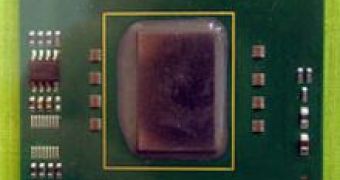INTEL today announced its new NetStructure MPCBL0050 single board computer blade server is ready along with new low voltage dual-core Xeons and INTEL Carrier Grade Server TIGW1U at ITU Telecom World. The new NetStructure MPCBL0050 is INTEL's first Core architecture powered blade server and it comes equipped with dual dual-core Xeon LV CPUs. The actual NetStructure servers are designed to be used by telecommunications companies and even include software for billings.
Also announced at ITU Telecom World were new dual-core INTEL Xeon LV 5138 and LV 5128 processors. The new Xeon LV 5138 and LV5128 processors are based on INTEL's Woodcrest Core. The processors are clocked at 2 GHz and 1.86 GHz respectively and they pack 4MB of level2 cache. The Xeon LV processors are intended for 2-way server use and offer lower thermal data power ratings compared to ordinary Xeon 5100 series processors. Unfortunately INTEL didn't reveal the TDP of the Xeon LV 5138 or LV 5128. Nevertheless, if you like you can use the higher clocked Xeon LV 5148 as a reference and the simple calculus should tell you to expect the TDP to be similar (if not lower) to the 40 watt TDP of the Xeon LV 5148.
INTEL has also announced its Carrier Grade Server TIGW1U. The Carrier Grade Server TIGW1U is powered by a previously launched Xeon LV5148 CPU clocked at 2.33 GHz. No other details regarding the Carrier Grade Server were revealed.
INTEL expects to mass ship NetStructure MPCBL0050 SBC and Carrier Grade Server T1GW1U in the beginning of 2007. The two servers are expected to start at a price tag of $5,169 for the MPCBL0050 and $1,550 for the TIGW1U. INTEL Xeon LV 5138 and LV 5128 processors will be available by the end of this quarter for $617 and $412 respectively in quantities of 1,000. INTEL also announced recently that in the first quarter of 2007 it will launch two more quad-core Xeon processors: a low voltage version featuring a TDP of maximum 50W and a single socket-use CPU designed to work in small workstations.

 14 DAY TRIAL //
14 DAY TRIAL //